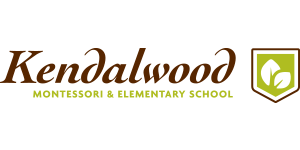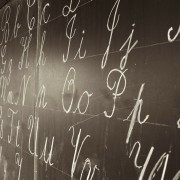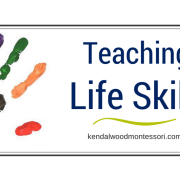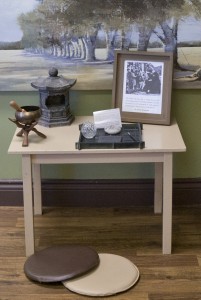The traditional practice of cursive handwriting is slowly disappearing from mainstream schools. Today’s students are printing instead, as focus shifts to typing and word processing. In the Montessori community, cursive writing continues to be a mainstay in the classroom. Montessori continues the tradition for a number of reasons:
Formation of Letters – Learning to write is hard work! There is fluidity to writing in cursive that makes it easier to learn, with increased speed and efficiency.
Trying to form each and every letter in print, taking the pencil off the paper after each letter and remembering how to print the next letter is time consuming. While it may seem the time difference is minuscule, it makes a big difference in the overall effort made while learning to write.
There is evidence that reading skills are more quickly developed, idea generation and retention of information is improved through cursive writing. Handwriting helps with the continuous flow of thought and enables students to think ahead while they are writing.
Fine Motor Skills – Cursive writing requires a large amount of control and fine motor skill. These skills are transferrable to many different areas of learning and proficiency supports students in their overall development.
Special Needs – In many situations, cursive writing can be beneficial for students with learning disabilities or special needs. Cursive letters have more distinctive shapes than in print, even though they may use the same upstroke or downstroke to produce. Letters like b and d are easily exchangeable in print and children with reading difficulties or dyslexia often have an easier time reading cursive as a result.
Signatures – Despite the digital age we live in, the practice of using a signature is still required in many situations. What’s more, a signature is an expression of individuality and personality! This is a special reason why teaching children how to write their name remains a priority in Montessori education.
Creating Beauty in the World – Maria Montessori believed that beauty and grace were an important part of the learning process. If something looked beautiful, children would be more apt to take care of it, use it, and learn from it. Handwriting is an art form and Montessori develops penmanship as another way to support the learning process while bringing beauty into our lives.
At Kendalwood, we continue the tradition of cursive writing for all these reasons and our students take pride in the art of handwriting. What do you think? Does penmanship still matter in this day and age?
Kendalwood Montessori & Elementary School is Durham Region’s first fully accredited Montessori school. At Kendalwood, we believe that our job is to inspire children to become the best students they can be. With a curriculum that focuses on developing the intellect as well as nurturing self-esteem, academics are taught, curiosity is cultivated and respect is fostered. Our approach creates an environment where students flourish and develop a lifelong love of learning.
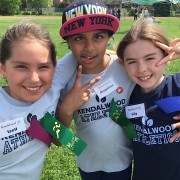 We’ve had a wonderful year at Kendalwood Montessori & Elementary School! It has be so exciting to launch our new website and this blog, giving our families more insight into life at Kendalwood and sharing the Kendalwood difference with our community in Whitby and Durham Region.
We’ve had a wonderful year at Kendalwood Montessori & Elementary School! It has be so exciting to launch our new website and this blog, giving our families more insight into life at Kendalwood and sharing the Kendalwood difference with our community in Whitby and Durham Region.